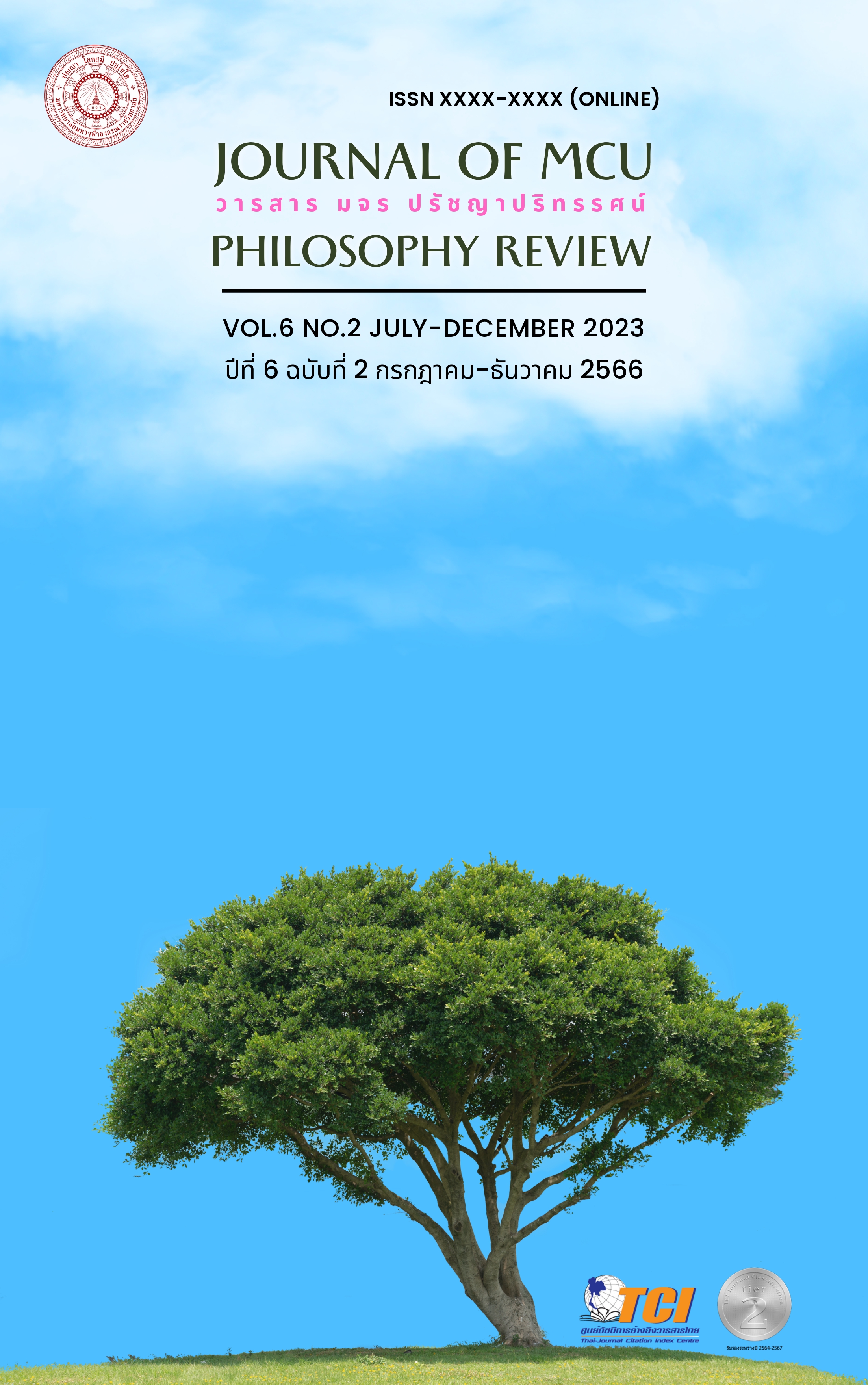A critique of the Debate on Devadatta as the Buddha’s Rival in Theravada and Mahãyãna Scriptures
Main Article Content
Abstract
This research paper aimed: 1) to explore the debate on Devadatta as the Buddha's rival in Theravada and Mahãyãna scriptures, 2) to analyze the context of the debate about Devadatta as the Buddha’s rival in Theravada and Mahãyãna scriptures, and (3) the criticize the debate on Devadatta as the Buddha's rival in Theravada and Mahãyãna. This research is made by a qualitative method applying particularly on documentary research from Theravada and Mahãyãna Buddhist scriptures. The research results were found that Theravada scriptures and sects that branched out from Theravada are of Dhammakuttika, Mahisãsaka, Sabpatthikavãda and Mũla-Sabpatthikavãda. There appear to be approximately 15 stories of the history of Devadatta in the main legends. The Mahãyãna scriptures, the Mahãsamghika-Vibhaṅga, Lalitavistra, Buddhacarita, and Mahãvastu Avadãna, have only 2-4 stories. As for the Lotus Sutta, it is not mentioned. There are two types of interpretations of the Devadatta: the interpretation done according to the scriptural text and the secularism interpretation. Since the interpretation done according to the text is limited, then it is necessary to use the latter, which reveals that the story of Devadatta's action in schism began with five objects. Devadatta was not a sinner as is commonly understood, but was only a monk who strict in Dhutaṇga. Economic and social developments were influencing the Sangha's practices. Devadatta was concerned about change and therefore had strict observances. But when the proposal was not approved, he and his group split up. The text recorders had to record the texts prohibiting other monks not to see Devadatta as a role model.
Article Details

This work is licensed under a Creative Commons Attribution-NonCommercial-NoDerivatives 4.0 International License.
บทความที่ได้รับการตีพิมพ์เป็นลิขสิทธิ์ของวารสาร มจร ปรัชญาปริทรรศน์
ข้อความในบทความที่ได้รับการตีพิมพ์ในวารสาร ถือเป็นความรับผิดชอบของผู้เขียนบทความ และข้อคิดเห็นนั้นไม่ถือว่าเป็นทัศนะและความรับผิดชอบของกองบรรณาธิการวารสาร มจร ปรัชญาปริทรรศน์
References
ฉัตรสุมาลย์ กบิลสิงห์ (แปล). สัทธรรมปุณฑรีกสูตร. พิมพ์ครั้งที่ ๕. กรุงเทพมหานคร: ศูนย์ไทย-ธิเบต, ๒๕๔๓.
มหาจุฬาลงกรณราชวิทยาลัย. (2539). พระไตรปิฎกภาษาไทย ฉบับมหาจุฬาฉบับมหาจุฬาลงกรณราชวิทยาลัย. กรุงเทพฯ : โรงพิมพ์มหาจุฬาลงกรณราชวิทยาลัย.
มหาจุฬาลงกรณราชวิทยาลัย. (2556). อรรถกถา ฉบับมหาจุฬาลงกรณราชวิทยาลัย. กรุงเทพฯ : โรงพิมพ์มหาจุฬาลงกรณราชวิทยาลัย.
มหาจุฬาลงกรณราชวิทยาลัย. (2540) มิลินทปัญหาปกรณ์ ฉบับมหาจุฬาลงกรณราชวิทยาลัย. กรุงเทพมหานคร: โรงพิมพ์วิญญาณ.
พระพรหมคุณาภรณ์ (ป.อ. ปยุตฺโต). (2556). พจนานุกรมพุทธศาสตร์ ฉบับประมวลธรรม. พิมพ์ครั้งที่ 25. กรุงเทพมหานคร: สำนักพิมพ์ผลิธัมม์, 2556.
พระมหาไกรวรรณ ชินทตฺติโย (ปุณขันธ์). (2546). การศึกษาวิเคราะห์บทบาทของพระเทวทัตที่ปรากฏในคัมภีร์พระพุทธศาสนา. วิทยานิพนธ์พุทธศาสตรมหาบัณฑิต สาขาวิชาพระพุทธศาสนา. บัณฑิตวิทยาลัย : มหาวิทยาลัยมหาจุฬาลงกรณราชวิทยาลัย.
สิริ เพ็ชรไชย (แปล). (2542). พระคัมภีร์สารัตถทีปนี (แปล) ภาค 4. กรุงเทพฯ : หจก. ทิพยวิสุทธิ์.
สำเนียง เลื่อมใส (แปล). (2553). มหาวัสตุอวทาน เล่มที่ 1. นนทบุรี: นิติธรรมการพิมพ์.
Bareau, A. (1997). Devadatta and the first schism. Buddhist Studies Review, 14(1), 35.
CBETA 數位研究平台. (1988). พระมหาปิฎกไทโช. [Online]. Source: https://tripitaka.cbeta.org/ [3 March 2024]
Dutt, N. (1978). Buddhist Sects in India, second ed. Delhi: Motilal Banarsidass.
Deeg, M. (1999). The Sangha of Devadatta: Fiction and History of a Heresy in the Buddhist Tradition. Journal of the International College for Advanced Buddhist Studies. 2, 187.
Jones, J.J. (1952). The Mahāvastu translated from the Buddhist Sanskrit Volume II. London: Luzac and Company.
Kubo, T., Yuyama, A., tr. (2007). The Lotus Sutra (Taisho Volume 9 Number 262), second ed. Berkeley: Numata Center for Buddhist Translation and Research.
Mitra, R., tr. (1881). The Lalita-Vistara. Calcutta: Asiatic Society of Bengal.
Mukherjee, B. (1966). Die Überlieferung von Devadatta dem Widersacher des Buddha in den Kanonischen Schriften. Munich: Kitzinger.
Ray, R.A. (1999). Buddhist Saints in India, (Revised ed). Oxford: Oxford University Press.
Willemen, C., tr. (2009). Buddhacarita: In Praise of Buddha's Acts. Berkeley: Numata Center for Buddhist Translation and Research.


